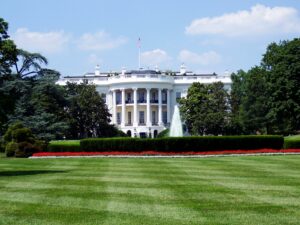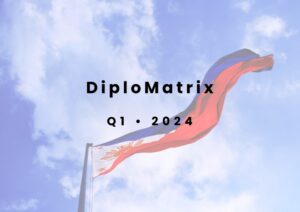Both of the following texts are a contribution from our colleagues who agreed to inform us about the situation of their country against the Covid-19 and the main concerns they face.
When China ordered the lockdown of Wuhan on January 24 this year, the western world was laughing and ridiculing. Western people thought this could only happen in an authoritarian country and would never be accepted in places like the US and Europe. Now the westerners are laughing no more. One country after another announced lockdown. Although the degrees are different, a lockdown is a lockdown. Virus knows no politics and sees no border. Capitalistic or communist, you might die if contracting coronavirus. Lockdown looks the most effective way to slow down the spread of the virus.
While China’s situation seems to be under control in mid-March, the rest of the world takes the other direction involuntarily. The coronavirus does not look more threatening than the yearly seasonal flu where some western countries see more than ten thousand resultant deaths each year. So why bother? There must be something we ordinary people who find puzzling. Are those causes of death really just flu? Did coronavirus exist before the outbreak in Wuhan? Can it be fairly called Wuhan/China virus or something else?
In 2003 China and some neighboring areas experienced SARS epidemic which did not seem to affect the western world in any significant way. Thus there has been this conspiracy theory that the SARS virus was a bio weapon designed to target the Chinese. This time there is also a similar conspiracy theory about the coronavirus which can be viewed as a cousin of the SARS virus. But now the whole world is infected so that we may be able to put the conspiracy theory to rest.
The SARS epidemic is important to China, including Hong Kong and Macau, and Taiwan. It makes people in those places understand the severity of the threat. The way China mobilizes resources this time makes the Japanese feel that China is demonstrating her capability of wartime mobilization. This crisis also demonstrates the advantage of maintaining a strong public medical system although the medical system reform is one of the generally recognized failures in the overall “reform and open”. As for Taiwan, being forced out of WHO, Taiwan has to be prepared and her preparation for 17 years really pays off this time. Although the national health minister is a dentist by training, his leadership is indisputable. Taiwan is perhaps the safest place on earth in terms of staying away from the coronavirus by now.
As for the US, it is a basket case. With the best hospitals and the most advanced medical technologies in the world, the US is not prepared. The investors have driven the whole medical-financial complex to be so expensively beyond a very large portion of the population. Now the Fed has to throw in 1.2 trillion dollars and the government has to add God knows how much more to avoid an economic meltdown. Had a fraction of that gone into the medical reform in the first place, the Americans would not have to get into this painful exercise today. The Chinese have an old saying: people do not shed tears until they see the coffins. It is very fitting.
This virus crisis also lets us see globalization from different angles. Without saying, given the intensity of global traveling, the spread of the virus is fast and furious. Suddenly people wake up in the morning to find that an unimaginable amount of things are made in China. If China shuts down, the whole world has to step on the brakes. Donald Trump cannot change that. The concentration of too many supply chains are in China. So the multinational companies will move them around in the next few years, the US trade deficit with China “might” decrease but the trade deficit with other countries will rise. The manufacturing actors remain the same, they merely set up factories in other more exotic places.
So what does all that leave us? The US economy is mainly driven by consumption and debts. So the crisis is really bad news. E-commerce companies like Amazon are welcoming a payday but that is only for the short term. If the crisis lasts, they will soon find fewer and fewer items to go through their logistic centers. The US will have vastly bigger fiscal deficits, more unemployment, and more greenbacks for the whole world… The Russians and the Saudis seem to be killing each other or really the Americans with her proud shale oil industry?
Is the existing so-called world order sustainable? Paradigm shift?
Additional text : Japanese testimony: The epidemic seen through the prism of the two main Japanese preoccupations of the moment, among which the educational subject remains predominant.
Whether the Olympics are postponed or held is a matter of nervous battle, but universities have another major problem. The school year in Japan ends in March and begins in April. Thousand or 10,000 graduates and entrance ceremonies will gather together with their parents for Unversities. This is an important event, but the majority has been canceled. Lectures will begin in the first week of April, but Waseda and Keio have already been late until the end of April.
Hiroyuki Yamamoto, former head of Nomura Securities Paris, Professor at Teikyo University.




